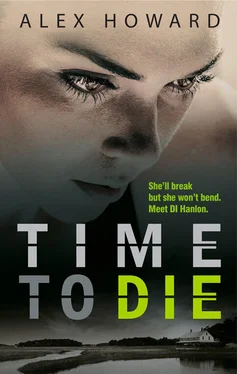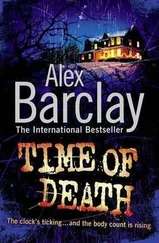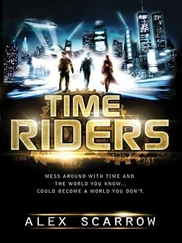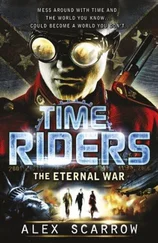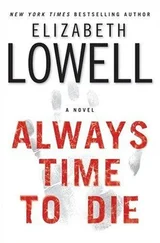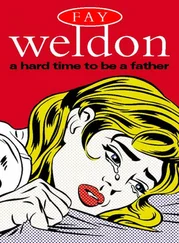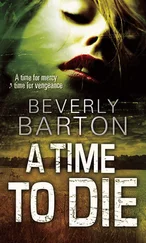Alex Howard - Time to Die
Здесь есть возможность читать онлайн «Alex Howard - Time to Die» весь текст электронной книги совершенно бесплатно (целиком полную версию без сокращений). В некоторых случаях можно слушать аудио, скачать через торрент в формате fb2 и присутствует краткое содержание. Жанр: Триллер, на английском языке. Описание произведения, (предисловие) а так же отзывы посетителей доступны на портале библиотеки ЛибКат.
- Название:Time to Die
- Автор:
- Жанр:
- Год:неизвестен
- ISBN:нет данных
- Рейтинг книги:3 / 5. Голосов: 1
-
Избранное:Добавить в избранное
- Отзывы:
-
Ваша оценка:
- 60
- 1
- 2
- 3
- 4
- 5
Time to Die: краткое содержание, описание и аннотация
Предлагаем к чтению аннотацию, описание, краткое содержание или предисловие (зависит от того, что написал сам автор книги «Time to Die»). Если вы не нашли необходимую информацию о книге — напишите в комментариях, мы постараемся отыскать её.
Time to Die — читать онлайн бесплатно полную книгу (весь текст) целиком
Ниже представлен текст книги, разбитый по страницам. Система сохранения места последней прочитанной страницы, позволяет с удобством читать онлайн бесплатно книгу «Time to Die», без необходимости каждый раз заново искать на чём Вы остановились. Поставьте закладку, и сможете в любой момент перейти на страницу, на которой закончили чтение.
Интервал:
Закладка:
‘No hard feelings, eh, son,’ he said, in a wheedling voice. ‘No ’ard feelings.’
Peter had tested his blood again in his cell earlier that morning. Five point eight, which was good. His initial panic at his predicament had died down to a general unease coupled, strangely, with boredom. Peter felt he was a survivor. He had survived the illness and death of his father. He had survived type-one diabetes; every day was, in a sense, a triumph. Sixty odd years ago, before synthesized insulin, he’d have been dead too. He would survive this.
He had nothing to do in the cell other than stroke the brown and white spaniel and eat the food that was provided. So far it was supermarket packed sandwiches together with bottled water. Breakfast had been sausage sandwiches. He didn’t like cold sausage but as a type-one diabetic he had to eat. He had given the dog its food that came in a bowl at the same time as his evening meal. There was a small, circular drain in the corner of the cell under the shower and the dog had, rather cleverly in Peter’s eyes, decided to use that as its toilet. Cleaning up after the animal was simply a question of sluicing it away.
Beneath the unremitting light from the bulb that never went out, he was measuring time by the amount of insulin injections he was giving himself. It was four a day. He had kept aside an old hypodermic needle and he made a scratch on the wall every time he injected himself. His body had developed a rhythm over the past couple of years and he knew that his timings were pretty accurate. Besides, the blood-sugar levels themselves would let him know if he was miscalculating time. Without this diabetic clock he would have no idea of how long he’d been there. By counting the scratches, he did. There was no clock in the cell, he didn’t have a watch, there was no natural light, and there was no background noise, nothing at all to provide a clue. All he had to measure the passing of time were the scratches on the wall. So far he had three of them, which meant he’d been there under twenty-four hours. Friday evening, Friday night, Saturday morning. By his reckoning, this made today Saturday afternoon. He wondered what would happen when his insulin ran out. He had seven days’ worth of NovoRapid insulin, more or less, the dose varied according to the amount of carbohydrate in his meal and what his blood-sugar levels were before he ate. He used the NovoRapid three times daily after meals. Usually at home and at school, he would calculate the dose of insulin by weighing his food. Here in the cell he didn’t have any scales but fortunately, either by accident or design of his captors, he had the carb levels printed on the packaging of the sandwiches.
He also had a week’s supply of Glargine, the slow-release insulin he took at night. If he was in the cell longer than a week, he’d be in trouble. Well, he thought, perhaps I’ll be free by then. I certainly hope so.
What he couldn’t understand was why he was there, why he was being held captive. Peter had tried various scenarios: kidnap, mistaken identity, terrorism; none of them made any sense. Why would anyone want him? The main thing, he decided, was to be brave, not to cry.
Having the dog helped enormously. He whispered his thoughts in its ear and shared his food with it. Perhaps when all this was over, his mum would let him keep the dog. Assuming they let the dog go with him. He was trying to think of a good name for him. It had to be worthy of the animal, something with a ring to it, something defiant.
And all the while the CCTV camera watched him. And fifty miles away in London, Lord Justice Reece periodically logged on to see how he was doing. He was looking forward to giving the boy what he needed, but anticipation was a huge part of the pleasure. He had rehearsed various scenarios in his head many times. Soon, he’d be able to put them into practice. It was what set us apart from the savages, in the judge’s opinion. Deferred gratification.
He had to fly to Brussels that evening, but he’d be able to view the boy whenever he wanted on his laptop until they were finally together in the coming week. An Internet feed was such a boon. The wait would only increase the pleasure, particularly now he could see what Conquest had arranged for him. Conquest had surpassed himself. The child was perfect, perfect in every way.
The judge thought back to when he was a child the same age, a very different child. He hadn’t been good-looking. ‘Blubber lips’, that’s what the other boys had called him at his boarding school, as had most of the teachers. His parents had been equally dismissive. At home, the judge had felt like an unwelcome guest who’d overstayed his welcome. But the judge had survived the bullying and the beatings. He’d survived through hard work, intelligence and the fierce will that they would not crush him. Every exam passed with an A grade, the scholarship to Pembroke, the first-class degree, all were battles he had won to get back at them. And now his time had come. They would dance to his tune. Those prefects who had beaten him, who had devised excruciating torments for him, and were now the Establishment, let them dance and grovel. Those good-looking boys who would never have reciprocated the judge’s schoolboy passions, let them dance the way he wanted them to dance.
He stared hungrily, lasciviously, at the boy’s straw-blond hair and licked his thin, juridical lips, lips that were so used to pronouncing judgments with pedantic, legal precision. Watching as the boy stroked the dog, the judge felt himself stiffen. Come Unto Me, that was how the school song had gone. And now he was calling the tune. It would be very soon now. Soon you will Come Unto Me, he thought. Very soon indeed.
19
In Germany, in Stuttgart, Kathy had finished her meeting with the line manager and the procurement director from the Siemens subsidiary, and she knew the contract was hers. The trip had gone far better than she could have anticipated. What was particularly pleasing was that the Germans had extended the contract period from three to five years. That was a huge, unexpected benefit to PFK. She was now looking forward to Monday to report to her company how things were going. Pleasant visions of the future danced across her imagination. She’d finish early and meet Peter from school and take him to the cinema for that new action film he wanted to see, the one she’d told him she wouldn’t have time to take him to. She was sorely tempted to call her MD, Tim Morgan, at home to tell him the good news, but decided to leave it until she went in to work. She had a reputation for coolness that she was proud of and she didn’t want to compromise it.
She was due back on the four o’clock flight to London and had accepted a lunch date from Max Brucker, the Siemens man. She had found herself the night before hoping that he would make a pass at her; she found him extremely attractive. She had spent a year mourning Dan; now she felt it was time to come out of her shell of bereavement. Nothing had happened last night but she knew that if he had tried anything, she’d have flung herself on him. She wanted him very badly. She looked at her left hand. She was looking at her marriage band. Gently, she worked it off her finger. She held it in the palm of her hand, the golden symbol of her past life, and stroked the circular indentation it had left in the skin of the third finger. She said, ‘I’m sorry, darling’ to Dan’s memory and undid the simple gold chain around her neck, then slid the wedding ring through and replaced the necklace. There, she had done it. It was a simple gesture, but a powerfully symbolic one. She was no longer married. She wondered if Max would notice. No, that wasn’t true. She knew Max would notice. How could he not? It was why she’d done it. It was a signal as clear and unequivocal as the ‘Please Make Up The Room’ sign she would hang on her door handle when she vacated the room.
Читать дальшеИнтервал:
Закладка:
Похожие книги на «Time to Die»
Представляем Вашему вниманию похожие книги на «Time to Die» списком для выбора. Мы отобрали схожую по названию и смыслу литературу в надежде предоставить читателям больше вариантов отыскать новые, интересные, ещё непрочитанные произведения.
Обсуждение, отзывы о книге «Time to Die» и просто собственные мнения читателей. Оставьте ваши комментарии, напишите, что Вы думаете о произведении, его смысле или главных героях. Укажите что конкретно понравилось, а что нет, и почему Вы так считаете.
